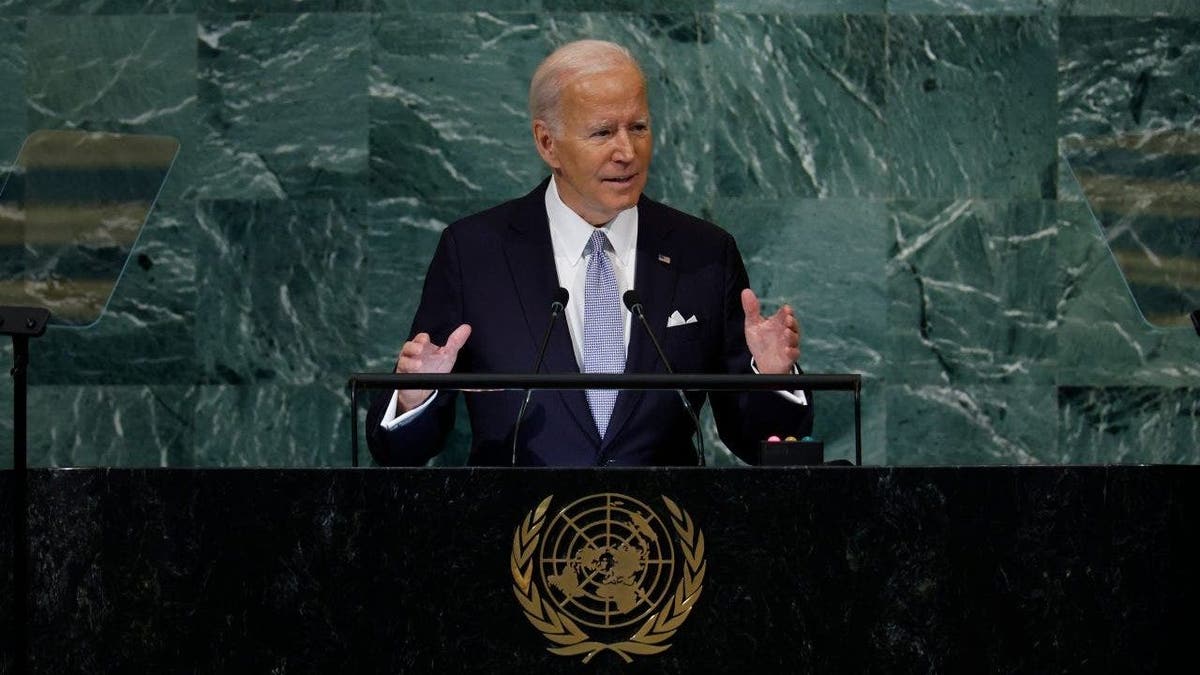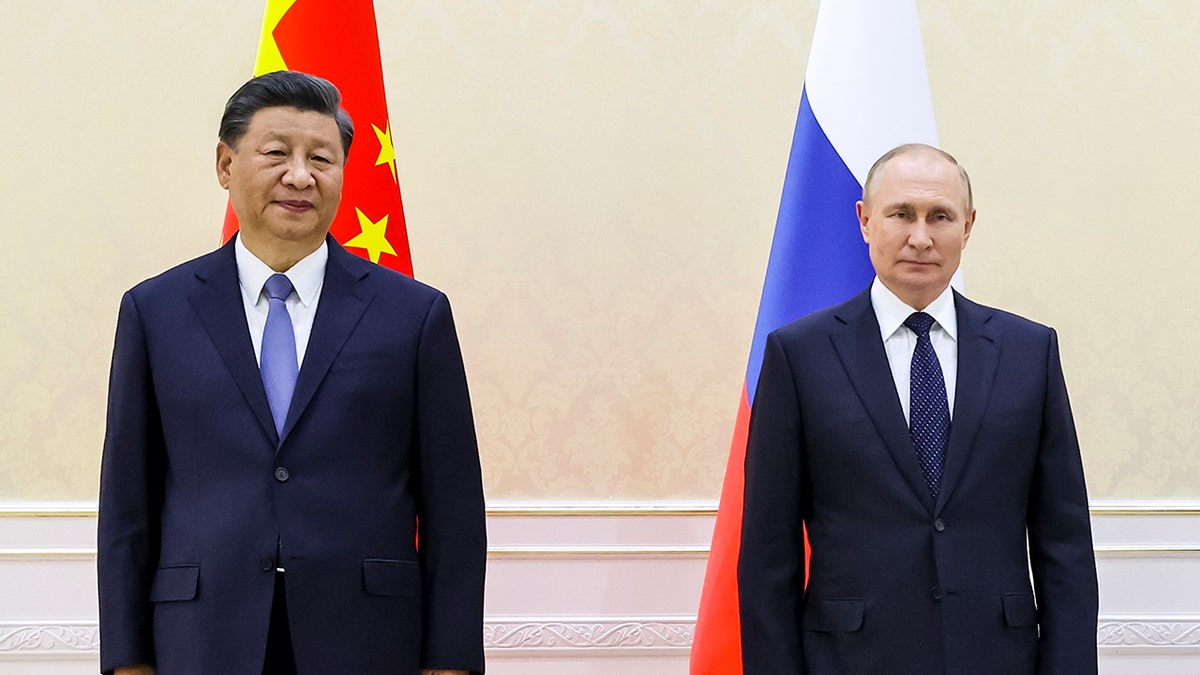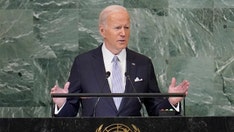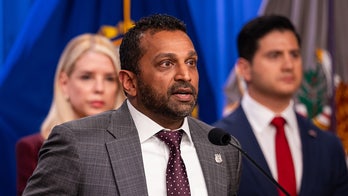Biden reaffirms 'one China' policy at UN after saying US troops would defend Taiwan
President Biden said the U.S. continues to support the "One China" policy, Wednesday at the United Nations.
President Biden on Wednesday looked to set the record straight following his surprising commitment to defend Taiwan with troops and said the U.S. is "committed" to the "One China" policy.
"We seek to pull peace and stability across the Taiwan Straits and remain committed to our ‘One China’ policy, which has helped prevent conflict for four decades," he told world leaders during the 77th UN General Assembly in New York City. "We continue to oppose unilateral changes in the status quo by either side."

President Biden speaks during the 77th session of the United Nations General Assembly at U.N. headquarters in New York City on Wednesday. (Anna Moneymaker/Getty Images)
The comments come after Biden made headlines following a "60 Minutes" interview on Sunday in which he said the U.S. would defend Taiwan with U.S. troops if it was attacked by China.
"So, unlike Ukraine, to be clear, sir," "60 Minutes" correspondent Scott Pelley asked, "U.S. forces, U.S. men and women would defend Taiwan in the event of a Chinese invasion?"
"Yes," Biden answered.
The White House later said that the U.S.’ policy towards Taiwan and China has not changed, and that Washington maintains "strategic ambiguity" on whether U.S. forces would be deployed to defend the island, reported CBS.

President Biden speaks during the 77th session of the United Nations General Assembly at U.N. headquarters in New York City on Wednesday. (Spencer Platt/Getty Images)
BIDEN IN UN SPEECH ACCUSES RUSSIA OF 'EXTREMELY SIGNIFICANT' VIOLATION OF INTERNATIONAL CHARTER
U.S.-China relations have become increasingly strained for a litany of reasons, ranging from Beijing's aggressive actions in the South China Sea and its continued allegiance to Russia amid the illegal war in Ukraine to frustration over the climate, human right abuses and the trade war.
"Let me be direct about the competition between the United States and China," Biden said. "As we manage shifting geopolitical trends, the United States will conduct itself as a reasonable leader.
"We do not seek conflict. We do not seek a Cold War. We do not ask any nation to choose between the United States or any other partner," he added.
Biden said the U.S. would continue to "unabashedly" promote its "vision of a free, open, secure and prosperous world" and argued that one nation's success is not to the detriment of another country.
"Each of our successes increased when other nations succeed as well," he added.
However, China’s commitment to Russia and its failure to condemn its deadly war has been a constant point of discussion at the general assembly this week.

Chinese President Xi Jinping, left, and Russian President Vladimir Putin pose for a photo on the sidelines of the Shanghai Cooperation Organization summit in Samarkand, Uzbekistan, on Thursday. (Alexandr Demyanchuk, Sputnik, Kremlin Pool Photo via AP)
CLICK HERE TO GET THE FOX NEWS APP
Beijing’s continued development of nuclear weapons without the precedent of a nuclear agreement has also risen to the forefront as the U.S. and European allies work with Iran to secure a nuclear nonproliferation deal.
"We cannot let the world now slide backwards," Biden warned.












































